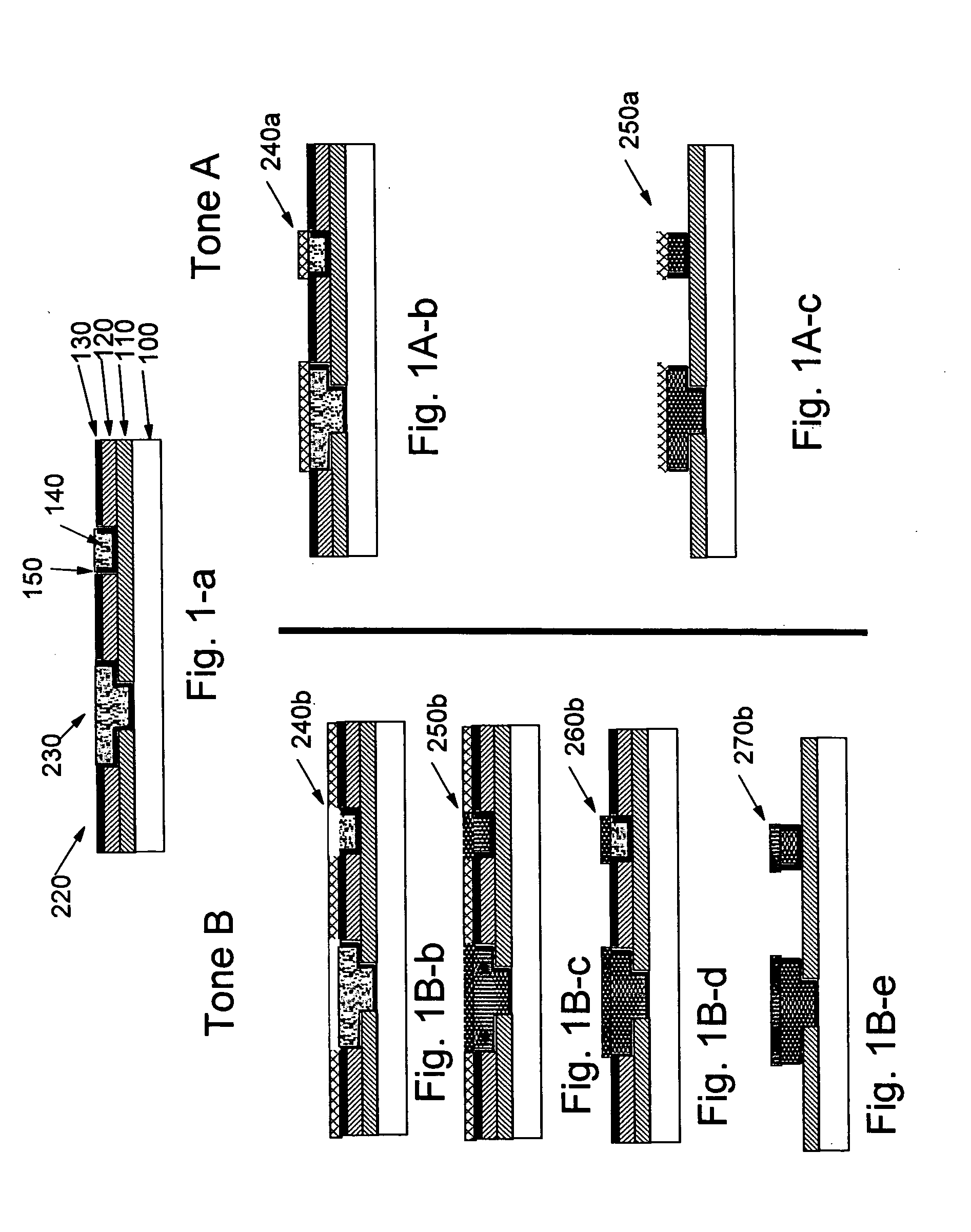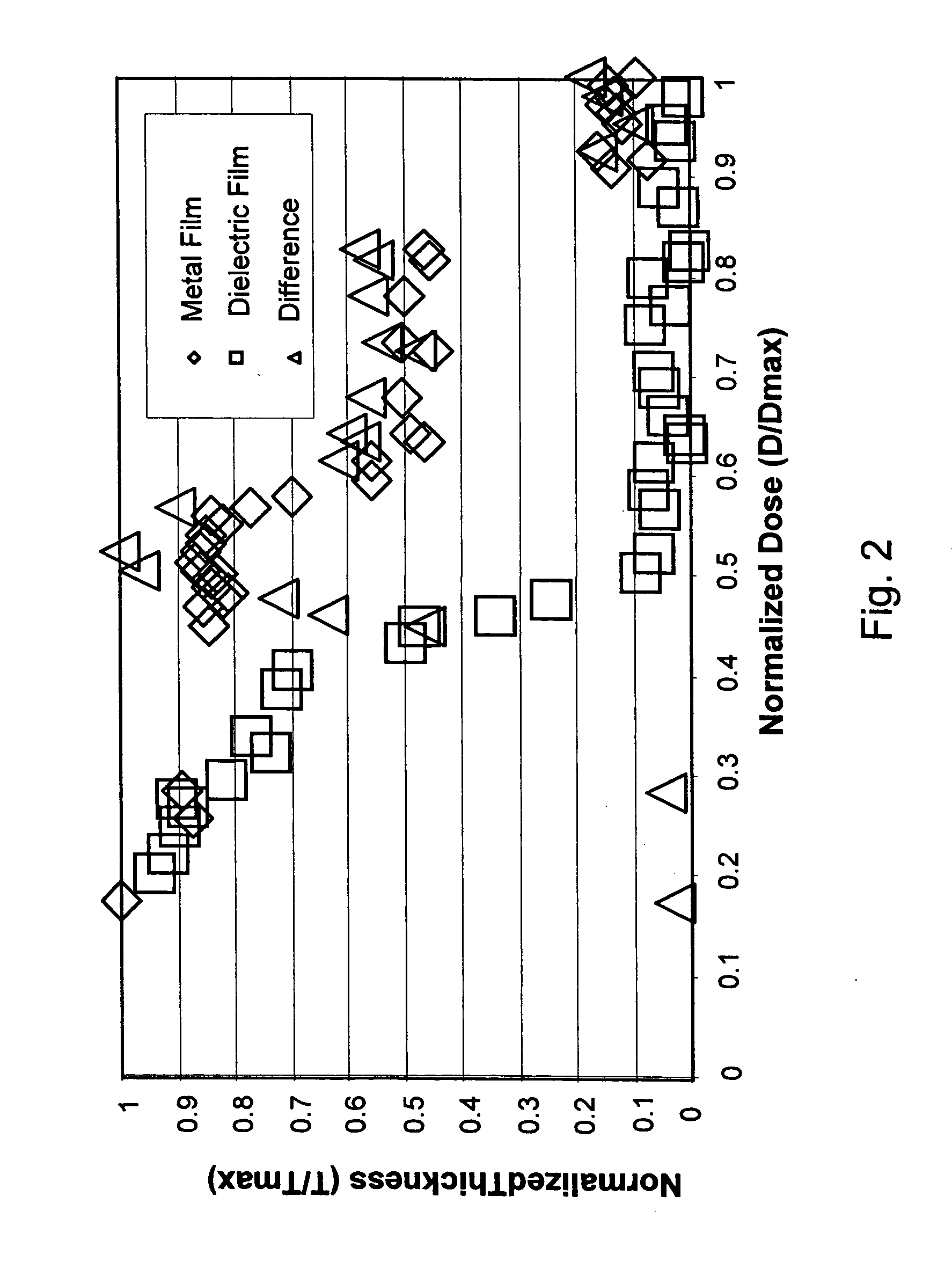Method of producing self-aligned mask in conjuction with blocking mask, articles produced by same and composition for same
- Summary
- Abstract
- Description
- Claims
- Application Information
AI Technical Summary
Benefits of technology
Problems solved by technology
Method used
Image
Examples
Embodiment Construction
[0042] The present invention provides a method of forming a patterned layer on a substrate having thereon a pre-patterned film. The method includes the steps of: applying onto the substrate having thereon a pre-patterned film a solution of a masking material in a carrier; removing at least a portion of the carrier to form a coating; patternwise exposing the coating to radiation in conjunction with a blocking mask pattern so that the radiation that is passed through the blocking mask is transmitted through the coating and is reflected back to the coating to produce a latent image in the layer having exposed and unexposed regions with a given spatial intensity distribution commensurate with the convolution of the block mask pattern and the spatial reflectivity map of the substrate having thereon a pre-patterned film; and developing the exposed coating to reveal a mask pattern in the coating commensurate with the spatial intensity distribution generated during exposure to radiation; an...
PUM
 Login to View More
Login to View More Abstract
Description
Claims
Application Information
 Login to View More
Login to View More - R&D
- Intellectual Property
- Life Sciences
- Materials
- Tech Scout
- Unparalleled Data Quality
- Higher Quality Content
- 60% Fewer Hallucinations
Browse by: Latest US Patents, China's latest patents, Technical Efficacy Thesaurus, Application Domain, Technology Topic, Popular Technical Reports.
© 2025 PatSnap. All rights reserved.Legal|Privacy policy|Modern Slavery Act Transparency Statement|Sitemap|About US| Contact US: help@patsnap.com



